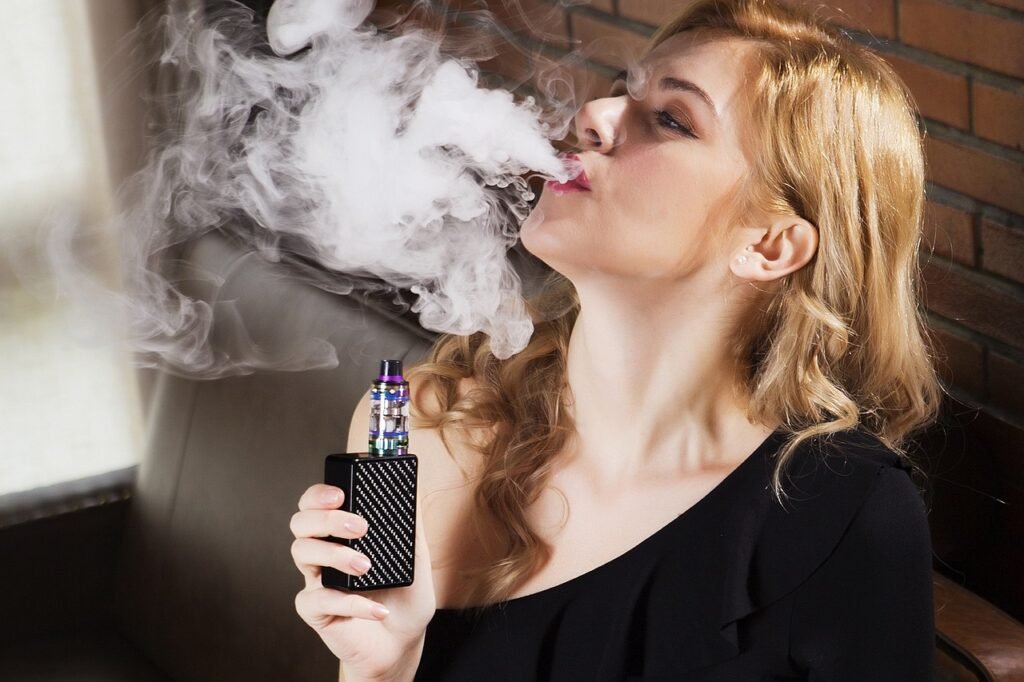
In recent years, vaping has become a popular alternative to smoking among humans, often touted as a less harmful option compared to traditional cigarettes. However, pet owners, particularly those with birds, might wonder about the implications of vaping around their feathered friends. Birds, especially parrots, have highly sensitive respiratory systems, and the introduction of any foreign substances into their environment can have significant health repercussions. This article explores whether vaping is harmful to parrots, with insights from avian veterinarians.
Parrots, like all birds, possess a unique and highly efficient respiratory system that is more sensitive to airborne particles and chemicals than that of mammals. Their respiratory system includes air sacs that facilitate continuous airflow through their lungs, ensuring they have a high oxygen exchange rate. This efficiency, while beneficial for their active lifestyles, also makes them more susceptible to airborne toxins.
Dr. Karen Becker, a renowned integrative wellness veterinarian, explains, “Birds have a very different respiratory anatomy compared to mammals. Their air sacs make them particularly vulnerable to inhaling toxins, including smoke, aerosols, and other airborne particulates.”
E-cigarette vapor typically contains a mixture of nicotine, propylene glycol, vegetable glycerin, flavorings, and various other chemicals. While marketed as safer than traditional tobacco smoke, these substances can still pose risks, especially in enclosed spaces where pets are present.
Nicotine is a toxic substance for birds. Even small amounts can lead to nicotine poisoning, with symptoms ranging from hyperactivity and vomiting to seizures and potentially death. Parrots are curious creatures, and accidental ingestion of e-liquid could be fatal.
Propylene glycol (PG) and vegetable glycerin (VG) are commonly used as carriers in e-liquids. While these substances are generally considered safe for human consumption, their effects on birds are less understood. PG can break down into propylene oxide, a known carcinogen, when heated. Inhaling these substances can cause respiratory irritation and distress in birds.
The flavorings and additives used in e-liquids often contain volatile organic compounds (VOCs) and other chemicals that can be harmful when inhaled. Birds’ respiratory systems can be irritated by these compounds, leading to issues such as respiratory inflammation or even long-term damage.
Dr. Peter Sakas, an avian veterinarian with extensive experience, cautions against exposing birds to any form of smoke or vapor. “Birds should never be exposed to any form of smoke or vapor, including e-cigarette vapor. The particles and chemicals in these vapors can cause severe respiratory issues and even death in birds.”
Dr. Lori Koehler, another avian specialist, shares similar concerns: “Even though vaping might be considered safer than traditional smoking for humans, the vapor still contains substances that are potentially hazardous to birds. We need to be very cautious about the air quality around our feathered companions.”
Secondhand exposure to e-cigarette vapor can have cumulative effects on parrots. Just as secondhand smoke from traditional cigarettes poses health risks to humans and animals, the vapor from e-cigarettes can lead to chronic respiratory problems in birds. Symptoms of exposure might include coughing, sneezing, wheezing, and general respiratory distress. Long-term exposure can exacerbate these issues, potentially leading to chronic respiratory diseases or reduced lifespan.
Given the sensitivity of parrots to airborne chemicals and particles, it is crucial for bird owners to maintain a clean and toxin-free environment. Here are some recommendations:
While vaping might be a preferable alternative to smoking for humans, it is not without risks, especially when it comes to the health of parrots. The chemicals and particles present in e-cigarette vapor can pose significant threats to their delicate respiratory systems. Avian veterinarians strongly advise against exposing parrots to any form of smoke or vapor. By creating a safe, clean, and toxin-free environment, parrot owners can help ensure their feathered friends lead healthy, happy lives.
